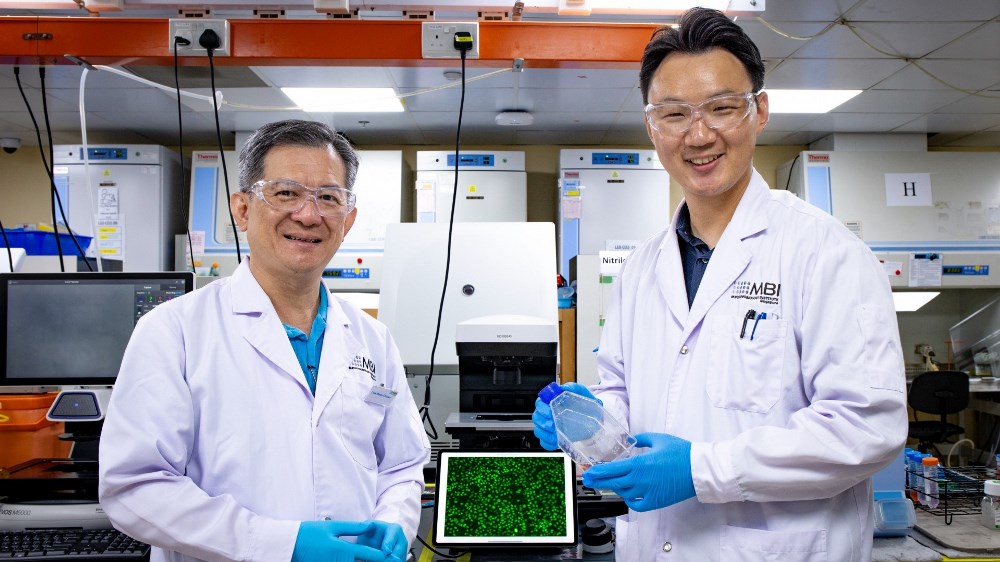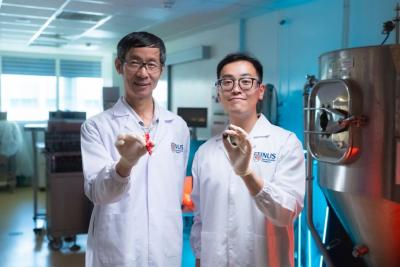Các nhà nghiên cứu từ Viện Cơ học tại NUS và khoa Khoa học Sinh học nghiên cứu tế bào ung thư gây di căn ung thư
Cancer is a leading cause of death worldwide, accounting for approximately one in six deaths, with metastatic cancers making up more than 90 per cent of cancer-related deaths. Metastatic cancers occur when cancer cells break away from their original tumour in the body, travel through blood vessels or the lymph system, and attach to other organs or tissues. The process of cancer cells developing the ability to spread to other parts of the body is a point of interest for scientists to discover potential checkpoints for cancer therapies.

Assoc Prof Low Boon Chuan (Left) and Dr Darren Wong (Right), together with their collaborators, have discovered the key function of the protein, BPGAP1, in promoting mobility in cancer cells that causes cancer metastasis.
A team of researchers from the Mechanobiology Institute at NUS and the Department of Biological Sciences under the NUS Faculty of Science, as well as external collaborators, worked together to gain a deeper appreciation for the cellular activities involved in causing cancer cells to change and move through blood vessels.
The team led by Dr Darren Wong under the guidance of Associate Professor Low Boon Chuan recently published their findings in the journal Molecular Biology of the Cell, published by the American Society for Cell Biology, in its “Forces On and Within Cells” Special Issue.
Metastasis is a composite process with limited treatment options focusing on relieving symptoms instead of targeting the root cause. Through their research, the team discovered how an essential protein, BPGAP1, works in cancer cells to bring together two other proteins, GTPases Rac1, and RhoA, to enable structural changes in cancer cells for them to travel from their original site and attach to another organ or tissue.
See more here





















